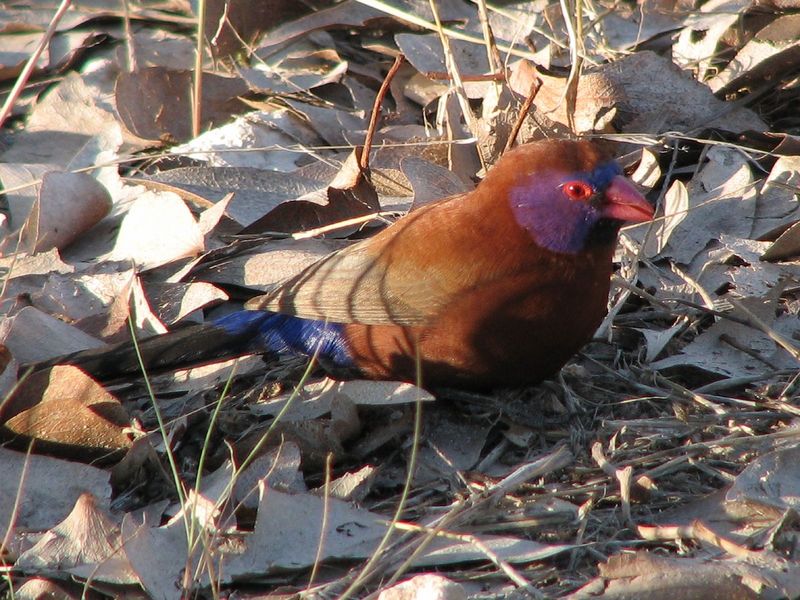ERROR : Server Busy(-1105)
ERROR : Server Busy(-1105)
Common Grenadier (Uraeginthus granatinus) - Wiki
Common Grenadier
From Wikipedia, the free encyclopedia
Order: Passeriformes
Family: Estrildidae
[Photo] Common Grenadier (Uraeginthus granatinus), Etosha, Namibia. Common resident in woodland and savannah. Source: Flickr (www.flickr.com/photos/merula/354128794/). Date: Taken on December 6, 2006. Author: Alastair Rae (www.flickr.com/photos/merula/).
The Common Grenadier or Violet-eared Waxbill Uraeginthus granatinus is a common species of estrildid finch found in drier land of Southern Africa. It has an estimated global extent of occurrence of 2,300,000 km².
Habitat
It is found in subtropical/ tropical (lowland) dry shrubland and savanna habitats in Angola, Botswana, Mozambique, Namibia, South Africa, Zambia and Zimbabwe. The status of the species is evaluated as Least Concern.
http://en.wikipedia.org/wiki/Common_Grenadier
| The text in this page is based on the copyrighted Wikipedia article shown in above URL. It is used under the GNU Free Documentation License. You may redistribute it, verbatim or modified, providing that you comply with the terms of the GFDL. |
|

